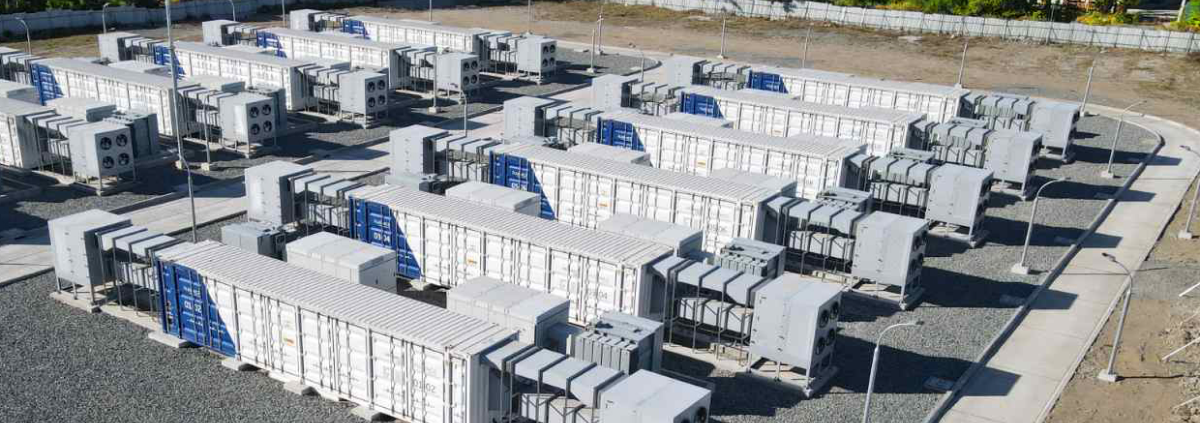Industrial Power Outage Battery Backup: How Factories and Warehouses Can Stay Operational When the Grid Fails
Unplanned power outages are one of the most disruptive events for any industrial facility. In manufacturing plants, even a few seconds of power loss can stop production lines, damage sensitive machinery, and lead to hours of downtime. In warehouses and logistics centers, a blackout can freeze automated systems and disrupt the supply chain.
That’s why industrial power outage battery backup systems are quickly becoming essential infrastructure — not just for energy resilience, but also for operational continuity and cost efficiency.
- Why Power Outages Hit Industrial Operations Hard
Industrial environments depend on a steady, high-quality power supply to keep automated production, conveyor systems, robotics, and environmental controls running. Yet, grid reliability is increasingly strained due to aging infrastructure, extreme weather, and peak load demands.
Here’s what even short outages can cause:
- Production loss: Interruptions in assembly lines or automated systems can require hours of recalibration.
- Equipment stress: Sudden voltage drops or spikes can damage drives, motors, and control electronics.
- Safety risks: In high-load facilities, abrupt shutdowns may compromise ventilation, temperature control, or worker safety.
- Inventory disruptions: Warehouses relying on automated sorting or cold-chain storage are highly sensitive to power interruptions.
This has led facility managers to look beyond traditional diesel generators toward battery-based backup power systems that are cleaner, faster, and more intelligent.
- What Is an Industrial Power Outage Battery Backup System?
An industrial battery backup system — often referred to as a Battery Energy Storage System (BESS) — stores electricity in high-capacity lithium-ion or lithium iron phosphate (LFP) batteries. During normal operation, the system stays charged from the grid or on-site renewables.
When a grid outage occurs, the BESS instantly activates, providing uninterrupted power to critical loads.
A well-designed system typically includes:
- Battery modules for energy storage
- Inverters for converting DC to AC power
- Energy management system (EMS) for automatic load prioritization
- BMS (Battery Management System) for safety and real-time monitoring
Modern systems are capable of millisecond response times — faster than traditional UPS or generator switchover — which is vital for maintaining sensitive industrial automation systems.
- Designing a Backup System for Industrial Use Cases
Unlike office buildings or small commercial sites, industrial facilities have complex load profiles. A one-size-fits-all battery backup solution doesn’t work here. Instead, system design must consider:
- Load Prioritization
Not every system needs to run during an outage. Prioritizing mission-critical loads such as control systems, servers, air compressors, and safety lighting helps optimize battery sizing.
- Duration and Depth of Backup
Determine whether the system is meant for:
- Short-term bridging (e.g., 10–30 minutes to cover brief outages or generator startup), or
- Long-duration backup (1–4 hours to maintain partial operations).
- Integration with Existing Power Systems
Battery systems can work alongside diesel gensets or renewable sources, providing a hybrid backup structure that enhances flexibility and reduces fuel use.
- Scalability and Modularity
Modular lithium battery systems allow gradual capacity expansion as power needs grow — an important feature for evolving manufacturing or logistics operations.
- Why Lithium-Based Backup Systems Are Ideal for Factories and Warehouses
Traditional lead-acid batteries are no longer practical for large-scale industrial backup because of their slow charge rates, shorter cycle life, and maintenance needs.
In contrast, industrial lithium battery systems offer distinct advantages:
- High power density — more energy in less space
- Fast response and recharge — critical for continuous operation
- Deep cycling capability — withstands thousands of charge/discharge cycles
- Low maintenance and remote monitoring — reduces operational overhead
- Environmental compliance — no toxic emissions or acid leakage
For factories seeking sustainable and scalable backup power, lithium-based BESS represents the new standard of reliability.
👉 Explore advanced C&I energy storage systems designed for industrial applications:
Leoch Lithium Industrial Energy Storage Solutions
- Real-World Applications
- Manufacturing plants
Support production continuity, protect CNC machines and robotics from voltage fluctuations, and reduce generator dependence.
- Warehouses and cold storage
Ensure conveyor systems, lighting, and refrigeration remain operational during outages.
- Industrial parks and logistics hubs
Enable shared backup capacity for multiple tenants, improving grid stability and reducing overall energy costs.
- Heavy equipment facilities
Support motor-driven operations and safety-critical systems with instant power during blackouts.
- Long-Term ROI and Operational Benefits
Beyond outage protection, battery backup systems deliver measurable long-term value:
- Reduced downtime losses: Avoid costly production halts.
- Energy cost optimization: Store energy during off-peak hours and use it when rates are high.
- Improved power quality: Smooth voltage and frequency fluctuations.
- Enhanced sustainability: Minimize diesel generator runtime and carbon footprint.
For decision-makers, the ROI typically extends beyond financial payback — it’s about resilience, brand reliability, and the ability to operate through uncertainty.
- Final Thoughts
In today’s unpredictable grid environment, power outage battery backup is no longer optional for industrial facilities — it’s a core element of risk management and energy strategy.
By integrating advanced lithium battery systems, factories and warehouses can secure operations, protect equipment, and build a foundation for smarter energy use in the years ahead.
Further Reading
If you’re exploring how industrial energy storage can enhance both backup reliability and energy efficiency, you may also like:


